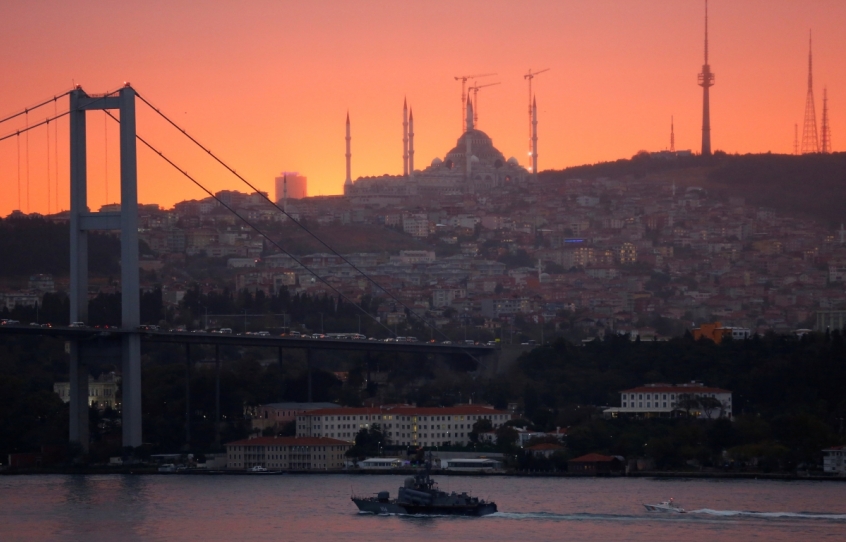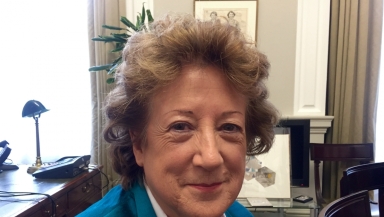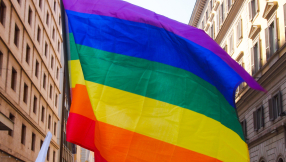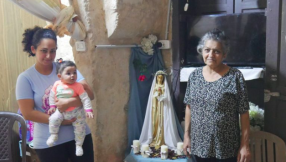
A senior Foreign Office minister has attacked President Bashar al-Assad of Syria for failing to protect Christians and for being responsible for the deaths of hundreds of thousands of civilians.
Baroness Anelay, Minister for Human Rights, accused Assad and his Russian allies of being responsible for the crisis in Syria.
She was speaking a conference at the Foreign and Commonwealth Office in London on how freedom of religon and belief can help the struggle against violent extremism.
Speaking to Christian Today and The Tablet during the conference, Baroness Anelay made a strong attack on Assad's regime.
"As far as one can see throughout Syria, Assad is not protecting minorties who are Christian. Assad is the cause of the destruction of security across the Syrian region. He is responsible for up to 400,000 deaths."

She said between 85 and 90 per cent of the civilians deaths were as a result of Assad and now his Russian allies. It was not just Christians but all minorities who were not being protected in any way.
She added: "I'm delighted that Russia has said they will have an eight-hour cease fire. Let's see if that works.
"What I condemn utterly is that Russia has apparently been involved in attacking civilians because they are civilians. I've met the 'white helmets' who have gone through this appalling double-drop system whereby the gunships of Assad and his allies come over the helicopters, drop their barrel bombs."
The white helmets are a force of around 3,000 volunteers formed in 2013 to rescue the victims of Syrian airstrikes. They have saved thousands of lives but some of the volunteers have themselves been killed while trying to rescue victims.
Baroness Anelay said: "The white helmets come out and resue people, start pulling them from the rubble, and as they are doing that, gunships that have been hovering, waiting, come back and barrel-bomb them again. That is obscene."
As tensions between Britain and Russia increase due to the escalation of the Syria crisis, leaders of the Russian Orthodox Church were in the UK this week.
Patriarch Kirill of Moscow met the Queen and the Archbishop of Canterbury as Baroness Anelay met Metropolitan Hilarion of Volokolamsk, who is chairman of the Moscow Patriarchate's department for external church relations.
Hilarion spoke about the tragic situation of Christians in the region, with many being forced to flee Syria. He told her that the world community was responsible for preserving the Christian presence in the Middle East.
Baroness Anelay said she responded firmly: "I made it clear that Assad is the cause of the problem and not the result and that he has not made any attempt to protect minorities." She added: "Assad and his allies, which include Russia, have not provided and cannot provide protection for minorities."
Baroness Anelay, speaking also about Islamic State, said the terror group was not motivated by faith but by power.
"Daesh doesn't target individuals because of their faith. They simply target them because they want to grab power. This is about a power grab."
The point of Daesh was not to attack other faiths.
"Daesh want power. It is their perverted sense of how they want to grab power – they present themselves as some kind of jihadis. They are not," she said.
The aim of the conference, which continues tomorrow, is to start finding ways to counter a mindset that is threatening the extinction of Christians in the Middle East in particular.
It is a "groundbreaking" conference because it is the first time the Foreign Office had been able to bring together representatives of faiths, government and NGOs who are working around the world to build relationships between faith.
"Wherever I go when I talk about the importance of respecting difference, I acknowledge that sometimes change can come slowly in societies," said Baroness Anelay.
In the UK, change had sometimes taken centuries. For example, it was only recently that British society had fully made the changes it needed to in regards of LGBT rights and equality.
"So we have to understand that when we assist countries to look at difference as something that is of value, not as something that might divide society, that we have to look at their own history and their own political systems and how legislation may need to change." The best way to achieve change was not just to use the ambassadorial network but also to help organisations on the ground to create change by the funding they provide.
Foreign Secretary Boris Johnson says in the conference programme foreword that human societies have always struggled to cope with their differences. "But the networked and interconnected nature of our modern world seems to have made this harder.
"Years of global inaction have created a dangerous climate of impunity in which violent prejudice can thrive and individuals are persecuted – or even murdered – because of their religion or beliefs," he says.
"So the years of drift must end: as an international community, we need to unite against extremism."













